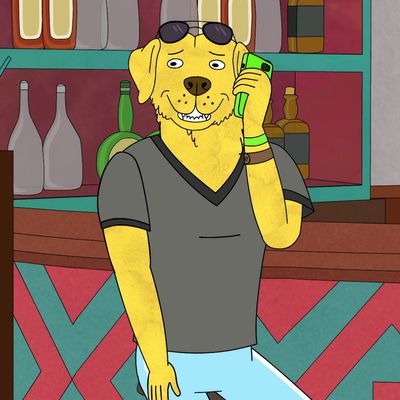
In high school, a classmate asked our 20-something English teacher what he did on the weekends. “Stay in my apartment and do whatever I want,” he said. What he wanted to do was make granola. I remember thinking that as an approach to adulthood, this did not sound so bad.
So maybe it’s no surprise that when the pandemic arrived in New York City, I feared many things, but I did not fear staying home. Why would I? I had always loved staying home. Probably my long-standing enthusiasm took root in childhood and young adulthood: Those are the years when you’re always getting herded through institutional settings, or else beset by parents and siblings and roommates, and solitude is an elusive form of freedom. I’d held onto it even in my early 20s — back when “going out” felt like the duty of youth, like I had an obligation to put myself in the path of even those experiences that did not actually seem fun.
Probably there was also a touch of vanity at work. Recall the online vogue a few years back for listicles about the travails of introverts: It turns out that a great many of us harbor the self-image of a hero or heroine in a middle-grade fiction, the kind who has one special friend and just loves to read. “Extrovert,” by contrast, suggests Mr. Peanutbutter on Bojack Horseman, an anthropomorphic yellow Labrador retriever with the indiscriminate enthusiasm of a dog and the glib charisma of a low-level celeb. Nobody wants to be Mr. Peanutbutter. It’s so much more appealing to imagine yourself as sleekly self-sufficient — like a snow leopard, or a plant. I liked being alone a lot of the time, and I liked thinking of myself as somebody who liked being alone.
In any case, through the pandemic’s early months, I did not really register any toll on my social life. The world was in the process of falling apart; I was not concerned about the lack of birthday parties and drinks dates that I would have probably tried to bail on anyway. When it came to solitary hours in the apartment (my husband was still obliged to leave for work every day), my personal threshold was high.
But it did exist, I eventually learned. There was a limit, and that limit was 14 weeks. Fourteen weeks was the point at which, having seen a group of friends for the first time since March, I prepared to say good-bye and surprised myself by starting to cry. I remember explaining through my tears that I “just missed hanging out so much.” Evidently I was not a plant. No, I was a puppy. I was a Border collie. I was a needy mammal, one that would potentially gnaw its leg off without the human equivalent of fetch and walks.
I began to notice a pattern as I went about my workdays: When I had occasion to talk to people, I felt invigorated — happier, more alert. To my horror, I realized I was feeling energized by meetings. Introverts, as all those listicles had explained, need lots of time to recharge their batteries after the demands of dealing with other people. The opposite was happening here. I was squeezing whatever sustenance I could from the bleakest of social encounters. I didn’t like Zoom — nobody likes Zoom — but even so, Zoom was a foothold in reality beyond my brain. In this respect, it was a welcome change of pace.
The problem with not being around other people is that you are around yourself nonstop, and this fact becomes particularly glaring if the place where you’re alone is your own home. Being in my apartment had begun to feel like walking around inside my own head. It was a museum of decisions, associations, memories, neglected tasks. The more time I spent there, the more every surface seemed to be coated in a repellent patina of me. What I missed, I realized, was the possibility of surprise: the unexpected after-hours encounter, the conversational detour that shakes loose a new thought. Twitter and Instagram offered the illusion of novelty — a stroll through the (chaotic, self-serving) marketplace of ideas! — but of course they were just showing me what they thought I wanted to see. I missed the things I didn’t want, or didn’t realize that I wanted — the chance to bump up against other people, in all their mysterious, frustrating, irritating unpredictability. This is, of course, the very risk and nuisance you avoid by staying in rather than going out.
“I’m realizing that I am … an extrovert,” I told my husband. He did not seem particularly surprised. I became shameless in my pursuit of (outdoor, masked) social activity. I accepted invitations, even vague or last-minute ones; I forced plans into being with a doggedness that would have humiliated me in 2019. I started walking miles, literal miles, to far-flung parks and stoops in pursuit of hanging out.
I remember a few group Zooms circa April that eventually degenerated into imagining a “first night out” post-pandemic. It was a line of fantasy that became less appealing as we gradually realized that the pandemic would have no single clean and obvious end. Now, I imagine all that untapped social energy emerging in smaller, dorkier ways — not a cathartic bacchanal in a reopened bar, but a bunch of people shivering on a brown lawn in February. How many more of my fellow homebody grumps are about to discover their inner yellow Labs?

